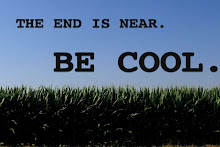
"Peggy Sue" is a loop, lyrically speaking. A very simple structure, but also a heavy one, because the idea substrating the poppy, boppy lyrical confectionism is the notion that direct experience (knowing) of the prized Peggy Sue will answer any question the listener has about the narrator/singer's "love" for her. Of course, this can be construed in more detail at least four different ways: (1) The narrator (Buddy Holly) is aware of his medium and assumes the audience does not know Peggy Sue, girl of his dreams, personally; (2) The narrator (a kind of Socrates addressing a chorus) is assumed to be speaking to an audience in particular - one that might know Peggy Sue personally (but not nearly as well as the narrator) and therefore knows her to be not-especially-desirable (for whatever reason - she has poor personal hygiene, overuses the word "basically," she has thick ankles, etc. - whatever); (3) The narrator is assumed to be speaking to an audience that knows Peggy Sue personally/conversationally but doesn't know her in the Biblical sense, as does the narrator, effectively making the song about the power of carnal pleasure; (4) in a combination of the first and fourth scenarios, the narrator, Buddy Holly, is pretty sure you, the listener, don't know her, but this chick named Peggy Sue gave him the best skronk (the I love you / I need you / I want you progression throughout the refrain underscores this nicely) of his life.
Of course, the song became a hit because it works on all four levels at once. The kiddos could gyrate along to its poppy, anesthetized sexual current. Their parents dug its innocence. The tweenie middle schoolers could sing-song the deceptively nursery-rhymesque hypnotic refrain. And the rockabillies know the song is all about a sex goddess that don't even have time for a rock avatar like Buddy Holly. Everybody wins...except the tune's poor, woebegone narrator.


No comments:
Post a Comment